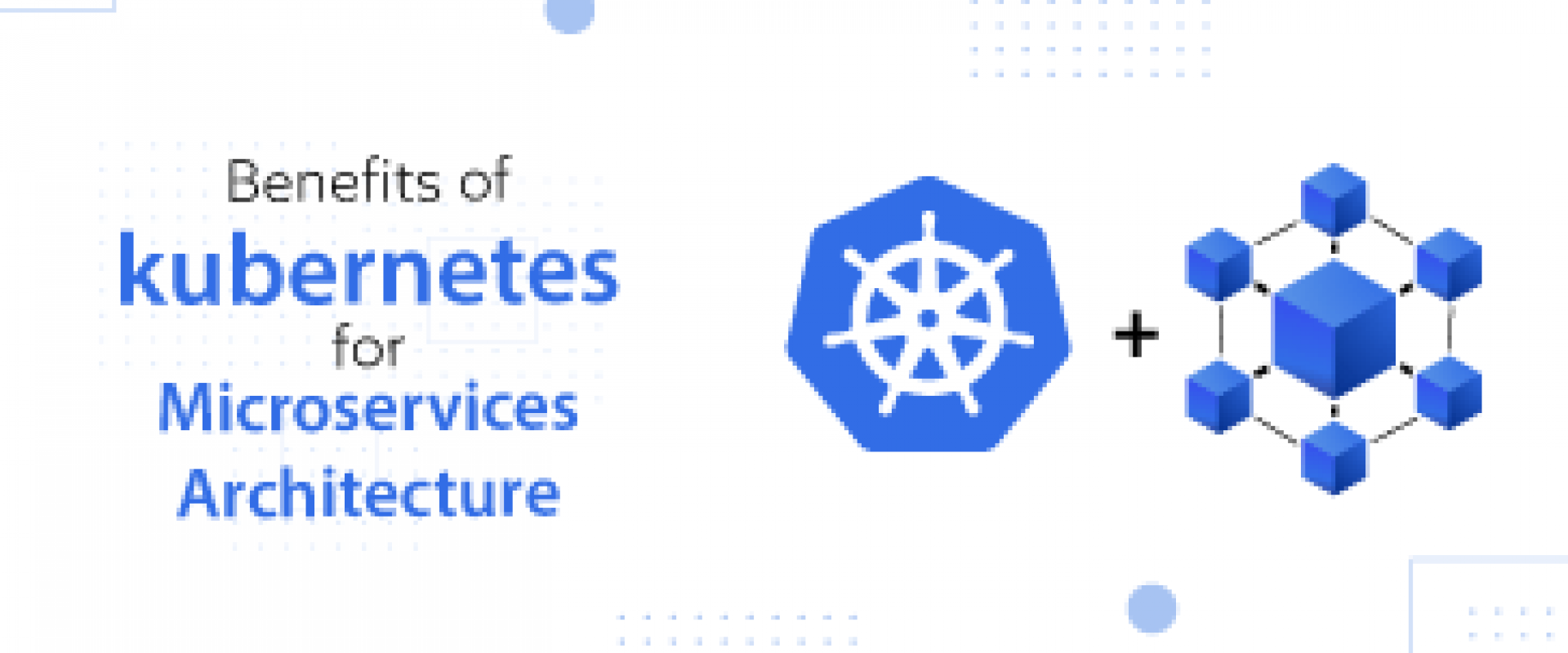Kubernetes: Benefits of Microservices Architecture for Large Enterprises

Kubernetes has captured the cloud market by storm through the implementation of infrastructure — find out how to utilize microservices architectures!
Kubernetes is increasingly becoming the de-facto standard with more software and applications workloads moving into containers. Kubernetes has captured the cloud market by storm through the implementation of strong infrastructure development. It makes deploying and managing the app easier and improves reliability and reduces the time you need to spend on DevOps.
According to Gartner's report, by 2022 more than 75% of organizations globally will be running containerized applications.
Kubernetes can be operated on-premises or within the public cloud. Vendors of cloud computing services, such as AWS, Microsoft Azure, and GCP, offer Kubernetes management solutions that allow clients to quickly start and run K8 applications efficiently.
How Are Kubernetes Benefiting Large Enterprises?
Here are five primary business loop capabilities that are driven by Kubernetes and its benefits for large enterprises
1. Faster app development/deployment.
2. Reducing resource costs.
3. Workload scalability.
4. Multi-cloud flexibility.
5. Effective cloud migration.
1. Faster App Development/Deployment
Kubernetes makes use of micro-services as its primary key point for deploying the applications. Using Kubernetes, you can split the IT team into smaller teams, where one will be able to focus on smaller services, and these teams will be able to perform well as they focus on a particular functional area resulting in saving a lot of time.
2. Reducing IT and Resources Expenditures
If you are running a business on a large scale, Kubernetes will help you to reduce your infrastructure cost significantly. Integrating apps with your cloud and hardware resources, Kubernetes makes a container-based architecture possible.
The administrators of the application before Kubernetes often over-provisioned the infrastructure for handling unexpected spikes or simply just because it was not possible to handle such difficult situations manually and scale up the containerized application.
Kubernetes considers the available resources and smartly schedules and tightly packs the containers. If the users of an app or software increases then it automatically adds more processing power so that more users can be active, which ultimately helps your developers to focus on other productive activities.
3. Workload Scalability
As the containers are lightweight by design, and they can be created easily in seconds. It is easy to breakdown your application into individual components with their functions. Therefore, you can quickly scale up to help you respond immediately, e.g. an e-commerce app during festivals or sales experiences massive traffic and less during regular days. In such situations, what we need is a solution that will scale up the application when users are buying more goods and scale down when the load decreases.
Kubernetes is not only helping in scaling up the infrastructure metrics but also helps in resource utilization metrics, and custom metrics to scale the process.
4. Effective Cloud Migration
Kubernetes is being adopted by all major enterprises for moving the app or web service to a container-based cloud environment. The cloud infrastructure is not only stable but also scalable, and it also helps you in reducing operational stress and cost.
Kubernetes provides easy and seamless rehosting of an app, or even if you want to make some changes, it can be done quickly and your app will run smoothly. Kubernetes provides flexibility for whatever changes you want to make in the application.
Kubernetes offers a more straightforward and customary way of transferring your application from on-premise to cloud, as it runs through all scenarios reliably on-premise and clouds like AWS, Azure, and GCP.
Three Predefined Paths for Migration of Your App to Kubernetes
Migrating apps to Kubernetes on-premise: In this process of migration, our focus is more on re-platforming your apps to containers and bringing them to the Kubernetes orchestration.
- Rehosting app: Rehosting is simply taking your app from one cloud and shifting it to the Kubernetes cluster. There is no need to make any changes, and the app is just shifted as it is. It is the fastest way to migrate to Kubernetes.
- Refactoring: It involves re-architecting the application for taking complete benefit of the cloud environment. Now that the application is on the cloud, the developer can make the changes as per the cloud environment and its service. It is the most advanced way of migration of an app to Kubernetes.
5. Multi-Cloud Flexibility
With the help of Kubernetes, it is easier for enterprises to run their applications or software on a public cloud or any combination of either private or public clouds. As the project is 100% open source, it gives you more flexibility. You decide if you want help from the external experts to implement and maintain your Kubernetes services, and you can easily switch your services provider if it is not giving good service.
Today using Kubernetes it is possible to achieve multi-cloud and hybrid-cloud promises. A lot of companies already use and will continue to use a multi-cloud system shortly.
Kubernetes makes it easier for enterprises who are running their apps on any public cloud service or with a public or private cloud. Kubernetes is the best fit if you are using its dedicated features, and leveraging it for easy migration of the apps to improve your ROI.
We Provide consulting, implementation, and management services on DevOps, DevSecOps, DataOps, Cloud, Automated Ops, Microservices, Infrastructure, and Security
Services offered by us: https://www.zippyops.com/services
Our Products: https://www.zippyops.com/products
Our Solutions: https://www.zippyops.com/solutions
For Demo, videos check out YouTube Playlist: https://www.youtube.com/watch?v=4FYvPooN_Tg&list=PLCJ3JpanNyCfXlHahZhYgJH9-rV6ouPro
If this seems interesting, please email us at [email protected] for a call.
Recent Comments
No comments
Leave a Comment
We will be happy to hear what you think about this post